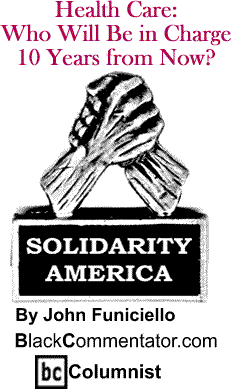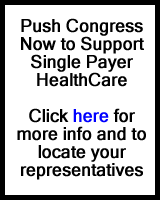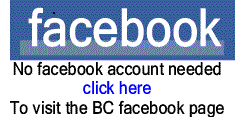
|
||||||||||||||||||||||
|
||
 |
||
As the nation�s health care debate winds down and a vote on some kind of package is taken, the question remains: Who will be in charge of the lives of millions of Americans as they struggle to maintain their health?
It would never come to that, Americans were told, because the Democrats had a �supermajority� in the U.S. Senate and a margin of some 75 votes in the U.S. House, and a Democrat sat in the White House. Because of this, we were told to expect real health care reform. What do we have that is better than what existed before Corporate America pulled out all the stops and poured money into the tea pot that is Washington, D.C.? Let�s see. Insurance companies will not be able to drop you from coverage because you get sick. You will not be denied coverage if you have a pre-existing condition. You can keep your insurance plan, if you like it. For all of the months of diatribes against any form of universal health care and the most uncivil series of epithets that masqueraded as debate for the better part of a year, that�s not much. It�s a start, according to those willing to take something, rather than nothing. Gone is the likelihood of curbing the rising costs of premiums for coverage (everyone will have to purchase health insurance, with the working poor getting a subsidy from the government if they can�t pay), gone is the possibility of curbing �administrative costs� of insurance companies, and gone is the likelihood that excessive pay and bonuses to health company executives will be reduced or eliminated. Insurers will be able to charge the elderly and those with pre-existing conditions more for premiums, and there will be no cap on premiums.
It has been clear for decades that the government is much more efficient at providing health care than the private companies. Medicare, for example, has about 4.5 percent of its budget allocated for administrative costs, while the insurance industry, generally, spends between 24 percent and 30 percent for administrative costs, presumably including its advertising budget, its high pay and bonuses for management, and other costs associated with the labyrinth of forms and companies required for billing and payment. There has been little to no discussion of this kind of inefficiency on the part of private industry. But that kind of inefficiency is repeated over and over in any kind of project or program in which a private company is engaged by the government. It�s as if the government - the people - have the deepest of pockets and whatever the final cost, the government will pay. That is, the people will pay it - through their taxes. It has been a long time since there was any kind of discussion of this kind of plunder of the public treasury. It�s a �given� that government is inefficient. The people believe that because they have been so propagandized, by and on behalf of corporations using their own tax money to do it. Many politicians have been carriers
of this propaganda, some of them knowing full well that what they
were saying was not true. In the health care reform �debate,� it
has been Republicans who have refused to participate, but some Democrats
have willingly participated in the flim-flam. Few of them are being
held to account. One Democrat who has sided with the position of
Republicans, Senator Blanche Lincoln of The press has been absent in any real coverage, creating headlines of the name-calling and the screaming rallies, especially in covering such as the Tea Party movement, whose members have said things and carried signs that could barely hide their racially-charged comments about Barack Obama and �his health care reform.� In their political ignorance, they even said he was a socialist. By now, most Americans have
heard that virtually every �developed� nation in the world has some
form of universal health coverage for their citizens. At this time,
The question that needs to be asked over and over is: Why are so many politicians and even some of the people opposed to providing health care for all? So far, there is no answer. The press is not asking the question. When George W. Bush, as a sitting president, was asked the question, his answer was telling. He responded that we have virtual universal health care, since no one can be turned away from an emergency room, a visit for which we all pay. Where was the press asking the follow-up question: �If someone turns up in the emergency room, saying �I have cancer,� what do you think the hospital is going to do?� It�s a simple question, but it never was asked. It�s one that needs to be asked over and over of the elected officials and politicians of every stripe.
This is not a question of money. Already, we spend about double that of other countries, per capita, for health care, yet we have 47 million without access to health care and an equal amount with inadequate coverage. So, it�s not the money. With a more sensible health care system, we could save that amount and provide care for those who are without it today. Where does the money go? This is not a question of public or private, although Medicare seems, hands down, the most efficient at delivering health care. According to T.R. Reid, author of The Healing of America, Japan has some 30 private payers in their universal health care system, but their costs are much less than the U.S. Other countries have a government-payer system and they work much more efficiently. The one thing that distinguishes
the
A nation so constituted can not long keep up the charade of equality, liberty, and opportunity for all. BlackCommentator.com
Columnist, John Funiciello, is a labor organizer and former union
organizer. His union work started when he became a local president
of The Newspaper Guild in the early 1970s. He was a reporter for
14 years for newspapers in |
||
If you would like to comment on this article, please do so below. There is a 400 character limit. You do not need a FaceBook account. Your comment will be posted here on BC instantly. Thanks. Entering your email address is not mandatory. You may also choose to enter only your first name and your location.
|
||
Thank you very much for your readership. |
||
| Any BlackCommentator.com article may be re-printed so long as it is re-printed in its entirety and full credit given to the author and www.BlackCommentator.com. If the re-print is on the Internet we additionally request a link back to the original piece on our Website. | ||
| |
||
March 18, 2010 |
| Executive Editor: David A. Love, JD |
| Managing Editor: Nancy Littlefield |
| Publisher: Peter Gamble |
| Est. April 5, 2002 |
| Printer Friendly Version in resizeable plain text format |
 |
 |
 |

|
 |
| |
| |


































 Health
insurance companies will stay firmly in the driver�s seat for the
foreseeable future and, with millions of new customers who are required
to buy insurance, they will rake in billions of dollars more each
year. They will be able to afford to absorb the cost of actually
providing health care to their policy-holders. They have ways of
discouraging people from seeking health care and they will come
up with many new schemes to do so, no doubt.
Health
insurance companies will stay firmly in the driver�s seat for the
foreseeable future and, with millions of new customers who are required
to buy insurance, they will rake in billions of dollars more each
year. They will be able to afford to absorb the cost of actually
providing health care to their policy-holders. They have ways of
discouraging people from seeking health care and they will come
up with many new schemes to do so, no doubt.
 The
question of universal health care is a moral question. The answer
tells us what kind of nation and society we are. It�s nothing less
than the parable of the good Samaritan. It�s probably nothing more
than that. When we see a fellow human being in need, what do we
do as individuals? What do we do as a nation? The answers tell us
who we are.
The
question of universal health care is a moral question. The answer
tells us what kind of nation and society we are. It�s nothing less
than the parable of the good Samaritan. It�s probably nothing more
than that. When we see a fellow human being in need, what do we
do as individuals? What do we do as a nation? The answers tell us
who we are.














